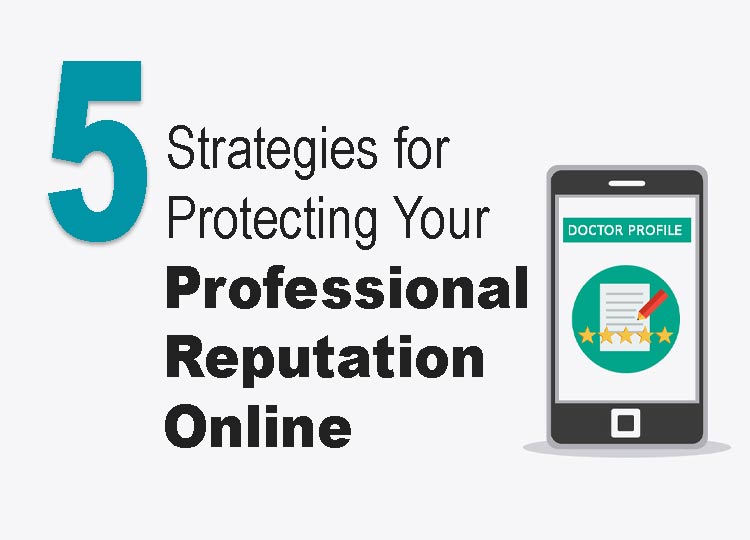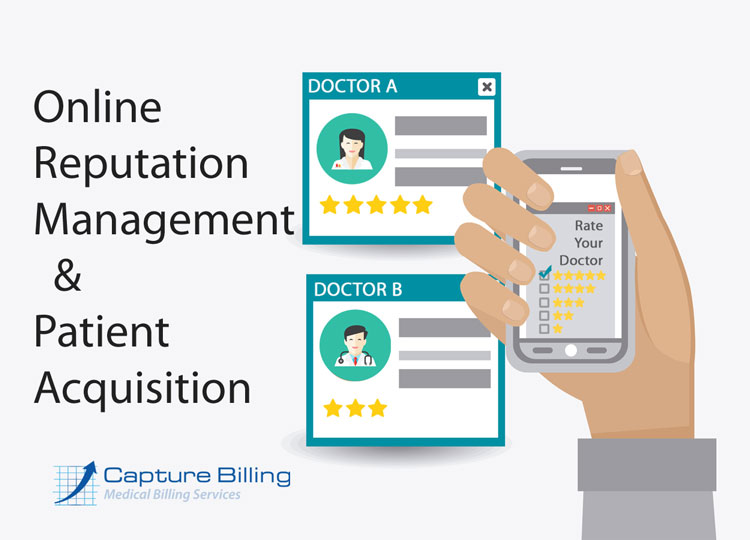Reputation management has never been more important for medical professionals. All the rules of a doctor’s pre-Internet reputation apply, and there are some new things to think about, too. In fact, a properly managed professional reputation online is one of the cornerstones of a solid growth plan for a 21st century doctor’s office—your online presence involves a whole lot more than your own website, and patients are looking everywhere.
Here are five ways you should be managing your online reputation. The work doesn’t end with these, but they’re a solid start to get you and your practice on the way to healthy growth.
1. Claim Your Profiles on “Find a Doctor” Sites and Directories Across the Web
There are dozens of sites out there that patients use to find, evaluate, and contact physicians, and a few like ZocDoc and HealthGrades are essential for a growing practice. There are even more business-listing sites and services, including Google’s own business listing service and an array of third-party sites. If you’re practicing medicine in your own office or clinic, chances are you have a profile on these sites whether or not you know it.
The first step in online reputation management is claiming your profile on all of the “find a doctor” and business-listing sites. If you don’t claim it, you can’t control the information presented, and much of what gets posted is bound to be inaccurate. Take control of your profiles, and you have more control over your medical practice itself.
2. Update Your Physician and Doctor’s Office Profiles Regularly
Now that your profiles are claimed, you need to make sure they all have accurate information about your medical office’s location, hours, contact info, etc. You should regularly update your profiles any time there’s a change, and make sure any personal physician profiles you claim or create are properly linked to your practice’s listing, if you’re using a different business name for your office or clinic (e.g. Dr. Mark E. Pruzansky needs to make sure his profile is consistent with the HandSport Surgery Institute).
You can find, claim, and update your profiles manually if you want, but there are software options that can make it much easier. With literally hundreds of different places on the web where you might be listed, the software option tends to be a major time and cost-saver in the long run.
3. Keep a Constant Eye On Your Medical Practice Profiles
That software will come in handy again when it comes to monitoring your online profiles. You should get a notification any time someone else makes a change to your profile, such as adding a review or comment, asking a question, “flagging” you for any reason, or if changes are made by the site hosting your profile. This gives you the opportunity to quickly step in and correct any inaccurate information, answer any questions, and respond to any comments/reviews in a prompt and professional manner.
Again, you want to control the information that’s posted about you online as much as you can, and monitoring your physician and medical practice profiles will go a long way towards making that a reality.
4. Let Your Patients Know That Their Opinion Matters
Your waiting room area(s) should have tasteful signage or other collateral reminding patients that what they say online truly matters to your business. For example, Dr. Brian Zelasko let’s patients know where they can place reviews and join discussions, and shows them that sharing their positive experiences online will actually help you make the practice better (and of course, encourage patients to speak to you or someone in your office immediately if they have a negative experience—those are actually great opportunity to turn a disgruntled patient into a lifelong evangelist).
5. Have an In-Office Staff member In Charge of Solicitation
Don’t stop with in-office signage. Develop a plan for following up with patients to make sure they were pleased with the service they received, and to encourage them to share their experiences online. An email a day or two after a visit to your office, postcards offering free flu shots with a reminder to rate you on HealthGrades, even a follow-up phone call when appropriate can improve your patients’ perception and motivate them to say so in public, where it matters most to your practice.
Putting a specific point-person in charge of this will free up your time and make sure it actually gets done because the best of plans is useless if it isn’t consciously carried out. Sort of like your medical practice’s online reputation…
Are you managing your practice’s online presence? Tell me about your experiences in the comments below.
— This post 5 Strategies for Protecting Your Professional Reputation Online was written by Garrett Smith and first appeared on Capture Billing. Capture Billing is a medical billing company helping medical practices get their insurance claims paid faster, easier and with less stress allowing doctors to focus on their patients.







